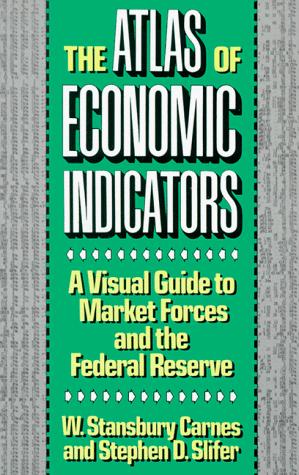Thursday, May 3, 2012
Tuesday, April 3, 2012
The Atlas of Economic Indicators: A Visual Guide to Market Forces, and the Federal Reserve
The book is written in a very simple and lucid way . All the key statements/theories are duly supported by appropriate visuals along with real time examples. As the name suggests the book deals primarily with the key economic indicators used for assessing the health of the economy. Various Classifications and the Sub-categories are also presented in a very clinical way . What captured my attention is that the equations and the basic definitions are also presented in a pictorial manner which makes it easier to visualize and grasp the essence of the topic. The author has made a point that this book can be used across a varied class of users including those who are not from the financial background. . In a nutshell , I will recommend this book to all those who are looking for a book to read about the basics of the Economic Indicators.
Title : The Atlas of Economic Indicators: A Visual Guide to Market Forces, and the Federal Reserve
Author : W. Stansbury Carnes and Stephen D. Slifer

Reference link on Amazon : http://www.amazon.com/Atlas-Economic-Indicators-Federal-Reserve/dp/0887305377
--
NVS
Economic Indicators : Debt/GDP Ratio
Ratio of Debt to GDP is one of the imp factors from economic point of view, used to gauge the economic health of the country. Usually countries strive to have this ratio as low as possible so as to avert such financial and unexpected circumstances.
To start with , lets understand the concept of GDP -In a simple way, it’s summing up what all the people earned OR spent over a definite period of time .Logically; both the measures should arrive at the same conclusion.
Alternative Definition is: Gross domestic product (GDP) refers to the market value of all final goods and services produced in a country in a given period.
Friday, March 16, 2012
What Govt can do more through SSA- Sarva Shiksha Abhiyan and RET
Importance of Education is something on which any man can talk about endlessly but only few have actually understood and acted in the way one should have to handle the Global Issue of Illiteracy ,especially for the needy ones The Govt. has 2 flagship programs for education : Sarva Shiksha Abhiyan (SSA) and Right to Education (RTE). Here are some of the alarming stats (Courtesy: Times of India ).
- Mean years of schooling in India is 4.4 years ( China 7.5 years)
- %GDP spent on Public education is down to 3.8% in 2008-09 compared to 4.3% in 2000-01 whereas Cuba has 18.7% which is highest.
- Only 21000cr INR have been received by RTE for 2011 out of sanctioned 48000cr.
- Of 7.5 lakh candidates who appeared for CBSE's all-India teacher recruitment test , only 93,000 passed
- NGO Parham’s Annual Status of Education Report (Aser) shows that nearly 47% Class V students cannot read Class II texts, while over 63% of Class III students cannot subtract
- India has a shortage of 1.5 million teachers.
Sunday, June 19, 2011
Tuesday, May 10, 2011
Stock Exchanges, Investments and Derivatives
The book “Stock Exchanges, Investments and Derivatives” written by V Raghunathan and Prabina Rajib deals with the common issues that any Investor faces , specifically those who do not have the technical background.
What’s the plot?
The book is a compilation of 250 most nagging questions an Investor has regarding the Stock market. The book deals with all the basics of the Stock Market. What the market is all about along with a brief history on Indian Markets. All the aspects of the stock market i.e. Equities, IPO, Mutual Funds, Bond Market, Derivatives, Share Pricing models, Introduction to Portfolio Management are introduced chapter wise.
What to expect?
The book is all about sharing the basics of the stock market in a question answer format. The highlight of the book is the simple language that has been used; the concepts are explained in a lucid manner without going into the technical details or using any financial jargons. All the theories and intricate material has been supported by appropriate examples, again which are simple to understand. The author has very tactfully touched all the topics of the market without going into details.
Verdict
I will recommend this book to all those who want to know the basics of the stock market. This is certainly book where I would like to begin. A word of Caution: This book is NOT about how to earn money in Stock Market or Trading Strategies. It’s a book for understanding the concepts.
Ref Link On Amazon : http://www.amazon.com/gp/product/0070077347/ref=cm_li_v_cr_self?tag=linkedin-20
Subscribe to:
Comments (Atom)


